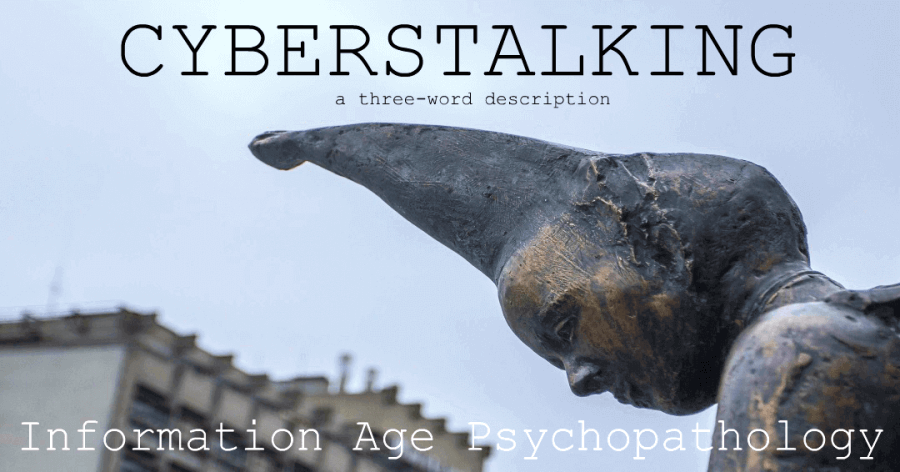What is Cyberstalking
by
Michael Nuccitelli, Psy.D.
Cyberstalking: Cyberstalking is defined as the use of Information and Communications Technology (ICT) to stalk, frighten, control, manipulate or habitually threaten a child, adult, business or group. Cyberstalking is both a tactic used by an ICT assailant and typology of pathological ICT user. Cyberstalking tactics include false accusations, threats of harm, habitual monitoring, surveillance, implied threats, identity theft, damage to property and gathering information to manipulate and control their target.
To meet the criteria of cyberstalking, the information and tactics used must involve a credible or implied physical and psychological threat to the target. An example of physical threat involves bodily harm to the target or their loved ones using ICT. Examples of psychological threats involve using disparagement, humiliation, dis-information dissemination and environmental damage to the target’s reputation, credibility or financial status if the target does not acquiesce to the cyber stalker’s demands. Cyberstalking is one category of iPredator that will continue to grow with the expansion of Information and Communications Technology. Not involving a direct or indirect threat of physical harm is cyber harassment. The definition is as follows:
Cyber Harassment
Cyber Harassment: Cyber harassment is defined as the use of Information and Communications Technology (ICT) to harass, control, manipulate or habitually disparage a child, adult, business or group without a credible or implied threat of harm. Cyber harassment is a tactic used by an ICT assailant that may or may not be rooted in an attempt to control, dominate or manipulate their target. Although cyber harassment pertains to unrelenting taunting and disparaging information directed at a child, adult, public figure, group or business using ICT, the motivations of the assailant may be rooted in their own pathological drives and motivations devoid of the need to control, dominate or manipulate their target. Like cyberstalking, cyber harassment is a typology of iPredator.
As Information and Communications Technology (ICT) becomes more widespread, cyberstalking prevention, education and protection are areas requiring immediate attention. The Information Age has many benefits to humanity, but it is vital to identify and prevent the malevolent and nefarious elements that exist in cyberspace and Information and Communications Technology.
Three Free Educational Cyberstalking Assessment Links
Cyberstalking Prevention Checklist [CSPC]
iPredator Probability Inventory – Cyberstalking [IPI-CS]
Cyberstalker Identification Interview [CSII]

Michael Nuccitelli, Psy.D.
Michael Nuccitelli, Psy.D. is a NYS licensed psychologist, cyberpsychology researcher and online safety educator. In 2009, Dr. Nuccitelli finalized his dark side of cyberspace concept called iPredator. Since 2010, he has advised those seeking information about cyberbullying, cyberstalking, cybercriminal minds, internet addiction and his Dark Psychology concept. By day Dr. Nuccitelli is a practicing psychologist, clinical supervisor and owner of MN Psychological Services, PLLC. After work and on the weekends, he volunteers helping online users who have been cyber-attacked. Dr. Nuccitelli’s is always available to interested parties and the media at no cost. This website and everything created by Dr. Nuccitelli is educational, free and public domain.
